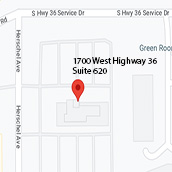How Debt Collectors Use Robocalls to Contact Consumers
It is likely that the majority of people have experienced the annoyance of a robocall. These are calls made by a company or agency that uses pre-recorded or automated voice messages to reach as many consumers as they can within a short period of time. Robocalls are often sent through auto dialers, which are computerized programs that store large quantities of numbers. Consumers may be reached through robocalling for a variety of reasons.
Perhaps one of the most common reasons robocalls are made is when a debt collection agency is attempting to obtain payment from a consumer who owes them money. What many people may not realize is that these calls may be unlawful, and legal action could be taken if they do not stop. Anyone who is not sure whether the calls they are receiving from a debt collection agency are legal can meet with an attorney, like a robocalling lawyer, for professional insight.
Are all robocalls out to collect money, scam, or sell a consumer something?
Not all robocalls are negative in essence. There are instances where a robocall is made with the intention to be purely informational. For example, a consumer may receive a robocall about an upcoming appointment, prescription reminder, bank alert, or college update regarding a class. Good-natured robocalls often include messages that are specific to the person, and the institution is not out to sell something or scam the consumer.
When are robocalls considered illegal?
If a debt collection agency wants to make a robocall to a consumer, they must first obtain consent to do so. An agency may get permission in such a way that the consumer does not realize what they did was deemed consent. For example, a debt agency may robocall the cell phone number a consumer listed when filling out an account application or the agency got the cell phone number when the consumer called to update his or her account information. Either way, this route is quite misleading, as many consumers think that a verbal statement is the only way to grant consent to receive these robocalls.
Can I sue the debt collection agency for contacting me with robocalls?
Depending on the circumstances, it may be possible for a consumer to sue the debt collection agency for illegally sending robocalls. The best way to find out if you have a case is to meet with an attorney. After consulting with you, an attorney can offer advice on what steps to take next. If you are considering filing a lawsuit, do not delete evidence of phone calls and voicemails that were made by the debt collection agency robocall. The specific phone numbers and how many times you received such calls can have an impact on how much financial compensation you are awarded. A consumer may want to take legal action due to a mixture of annoyance, and after realizing they have rights that the debt collection agency may have violated.






